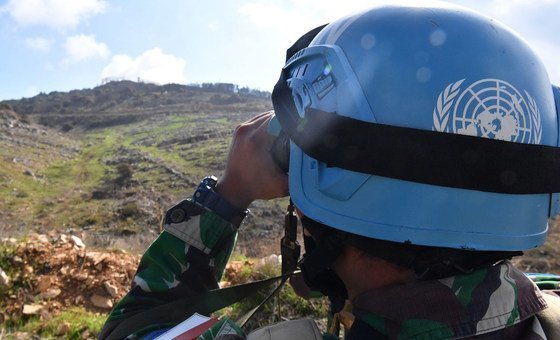The Under-Secretary-General for Peacekeeping Operations expressed deep concern about the ongoing conflict in southern Lebanon and its impact on civilians and called for a return to dialogue to restore peace.
Jean-Pierre Lacroix told reporters at UN headquarters in New York on Thursday that peacekeepers are determined to carry out their duties under the mandate given by the Security Council to the United Nations Interim Force in Lebanon (UNIFIL).
“Peacekeepers are currently maintaining a presence at their deployment sites… Team UNIFIL is united and committed.”
The Under-Secretary-General said the UN mission, along with its partners, is making all possible efforts to protect the local population.
In addition, temporary shelters are being provided for violence-affected populations and humanitarian aid operations are being supported.
important responsibility
The mandate of the United Nations Mission in Lebanon is to ensure the withdrawal of Israeli military forces from southern Lebanon and to help establish the Lebanese government’s authority in the region.
In 2006, the mission’s responsibilities were expanded following the war between Israel and Hezbollah, and it was tasked with monitoring a ceasefire in the violent conflict.
The UN mission is the only channel of communication between the Israeli and Lebanese armed forces. On 2 September, 10,058 peacekeepers from 50 countries were part of the UNIFIL mission. Apart from them, about 800 civil servants are also serving in this mission.
Under-Secretary-General Lacroix stressed that the safety of UN peacekeepers is their top priority.
“Over the past months, weeks and days, many steps have been taken to protect peacekeepers. But their protection and defense is a common responsibility.”
sensitive situation
Meanwhile, the situation on the ground in Lebanon is sensitive and civilians are fleeing for safety from Israeli bombing of residential areas.
The current conflict has also affected health workers and services and 28 health workers have lost their lives in the last 24 hours.
Thirty-seven health centers were closed in southern Lebanon, while staff at three hospitals in Beirut were evacuated, with services partially disrupted at two other sites.
Health workers are unable to report to work due to continuous bombings, affecting the availability of emergency services.
Dr. Tedros Adhanom Ghebreyesus, Director-General of the United Nations Health Organization, said that in extremely difficult and dangerous situations, health and humanitarian aid workers, including WHO staff, have performed their duties incredibly.
He expressed anger that healthcare services are under attack. In view of this, he appealed to all partners to arrange flights to deliver vital supplies to Lebanon.

